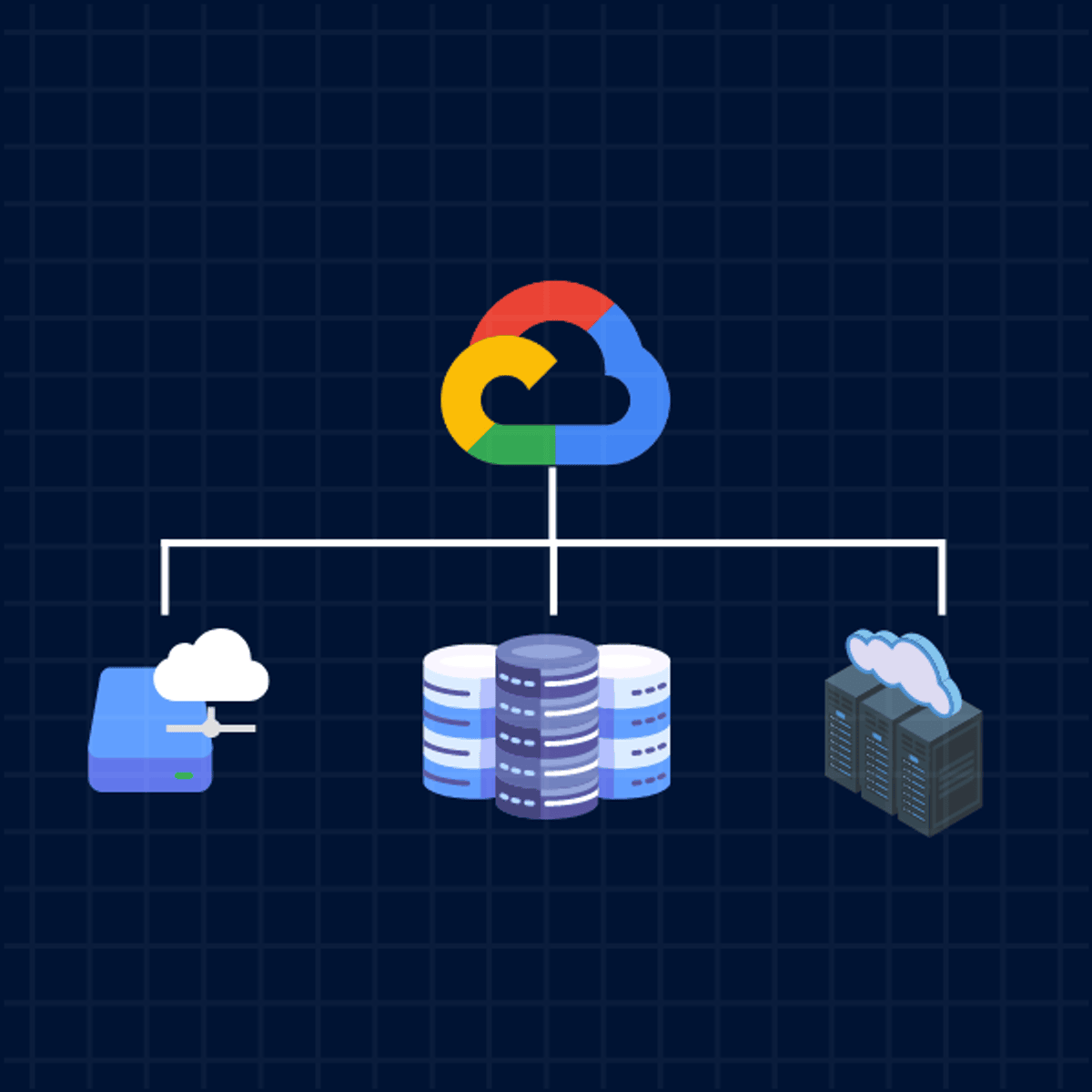Technology Consultant
Technology Consultant: A Comprehensive Career Guide
Technology consultants are strategic advisors who help organizations leverage technology to solve business challenges, improve performance, and achieve strategic goals. They bridge the gap between complex technological capabilities and tangible business outcomes, guiding clients through the ever-evolving landscape of digital innovation. This role demands a unique blend of technical expertise, business acumen, and strong interpersonal skills.
Working as a technology consultant often involves tackling diverse and intellectually stimulating problems across various industries. Consultants get exposure to cutting-edge technologies and help shape how businesses operate in the digital age. The dynamic nature of the work, combined with the potential for significant impact and continuous learning, makes it an exciting and rewarding career path for many.
Introduction to Technology Consulting
Defining the Role and Its Scope
At its core, technology consulting involves analyzing a client's technological infrastructure, understanding their business needs, and recommending or implementing technology solutions. This can range from advising on software selection and IT infrastructure upgrades to designing large-scale digital transformation strategies. Consultants work closely with client teams, from C-suite executives to IT staff, to ensure solutions align with business objectives.
The scope is broad, covering areas like IT strategy, cybersecurity, cloud computing, data analytics, enterprise resource planning (ERP) systems, customer relationship management (CRM) systems, and the adoption of emerging technologies like artificial intelligence (AI) and the Internet of Things (IoT). Consultants might specialize in a specific technology, industry, or type of business problem.
Ultimately, a technology consultant acts as a trusted partner, offering objective advice and expertise that organizations may lack internally. They help clients navigate complex technological decisions, manage implementation risks, and maximize the return on their technology investments. This often involves not just technical know-how but also change management expertise to ensure smooth adoption of new systems and processes.
To understand the fundamentals of business operations which often form the context for consulting engagements, consider exploring introductory business courses. These can provide a solid base for grasping client challenges.
A Look Back: The Evolution of Tech Consulting
Technology consulting emerged alongside the rise of enterprise computing in the mid-20th century. Initially, firms focused on implementing large mainframe systems and optimizing data processing. As technology evolved with personal computers, client-server architectures, and the internet, the role of the consultant expanded significantly.
The late 1990s and early 2000s saw a boom driven by ERP implementations and the Y2K challenge. The rise of the internet and e-commerce created new demands for web strategy and digital integration. More recently, cloud computing, big data, mobile technology, cybersecurity threats, and AI have reshaped the consulting landscape again.
Today's technology consultants must grapple with rapid technological change, complex integrations, data privacy regulations, and the strategic implications of digital disruption. The focus has shifted from mere implementation to strategic partnership, helping clients innovate and maintain a competitive edge through technology. This evolution reflects technology's transformation from a support function to a core driver of business strategy.
Understanding the historical context provides valuable perspective on current trends and future directions in the field. It highlights the constant need for adaptation and learning that defines this career.
Key Industries Utilizing Technology Consultants
Virtually every industry leverages technology consulting services to stay competitive and efficient. Financial services firms rely on consultants for cybersecurity, regulatory compliance technology (RegTech), fintech integration, and optimizing trading platforms. Healthcare organizations seek expertise in electronic health records (EHR), telehealth, data analytics for patient outcomes, and HIPAA compliance.
The manufacturing sector engages consultants for supply chain optimization, implementing IoT for smart factories (Industry 4.0), ERP systems, and automation. Retailers utilize consultants for e-commerce platforms, CRM systems, supply chain management, and leveraging data analytics for personalized customer experiences.
Governments and public sector organizations also hire consultants for large-scale IT modernizations, cybersecurity, digital service delivery, and data management. Even non-profits engage consultants to optimize their operations, manage donor databases, and improve service delivery through technology. The breadth of application underscores the universal importance of technology in modern operations.
Exploring specific industry applications can help aspiring consultants identify areas of potential specialization or interest. Many find focusing on a particular sector allows for deeper expertise and impact.
Core Responsibilities of a Technology Consultant
Understanding Client Needs: The Assessment Process
A fundamental responsibility is accurately assessing a client's situation and requirements. This involves detailed discovery sessions, stakeholder interviews, workshops, and analysis of existing systems and processes. Consultants must ask probing questions to uncover underlying problems, not just surface-level symptoms.
Effective needs assessment requires strong analytical skills to sift through information, identify pain points, and understand the business context. It also demands excellent communication and active listening skills to build rapport with clients and ensure their perspectives are fully understood. Documenting findings clearly and concisely is crucial for aligning all parties.
The goal is to develop a comprehensive understanding of the client's current state, desired future state, and the specific technological gaps or opportunities that exist. This forms the foundation upon which effective solutions can be designed and proposed. Misunderstanding client needs early on can lead to ineffective solutions and project failure.
Developing strong presentation skills is vital for conveying assessment findings and proposed solutions effectively to clients. Online courses can help hone these crucial communication abilities.
Crafting Solutions: Design and Implementation
Once needs are understood, consultants design technology solutions tailored to the client's specific context. This involves evaluating different technologies, platforms, and approaches, considering factors like cost, scalability, security, integration with existing systems, and vendor capabilities. Solution design often requires creativity and problem-solving skills to address unique challenges.
Implementation involves translating the designed solution into a working reality. This might include configuring software, overseeing development work, managing data migration, integrating different systems, and ensuring the solution functions as intended. Project management skills are critical here to manage timelines, budgets, resources, and risks effectively.
Consultants often work alongside client teams and vendors during implementation, requiring collaboration and coordination. They must anticipate potential roadblocks and adapt the plan as needed, ensuring the project stays on track and delivers the expected value. Understanding how to manage complex projects, like ERP implementations, is a valuable skill.
Navigating Relationships: Stakeholder Management
Technology projects impact various stakeholders within an organization, each with different interests, priorities, and levels of technical understanding. A key responsibility of a technology consultant is managing these relationships effectively. This involves identifying key stakeholders, understanding their perspectives, and communicating appropriately.
Building trust and maintaining open lines of communication are essential. Consultants need to translate technical concepts into clear business language for non-technical stakeholders and articulate business needs to technical teams. Managing expectations and addressing concerns proactively helps ensure buy-in and smooth project progress.
Conflict resolution skills are also important, as disagreements can arise regarding project scope, priorities, or technical approaches. Consultants often act as facilitators, helping different groups find common ground and align towards shared project goals. Strong stakeholder management minimizes resistance and fosters collaboration.
Measuring Success: Post-Deployment Evaluation
The consultant's job doesn't end when a system goes live. Evaluating the effectiveness of the implemented solution is crucial. This involves defining key performance indicators (KPIs) based on the initial project goals and measuring the solution's impact against these metrics.
Post-deployment evaluation helps determine if the project achieved its intended business outcomes, such as increased efficiency, reduced costs, improved customer satisfaction, or enhanced capabilities. It provides valuable feedback for both the client and the consulting firm, highlighting successes and areas for future improvement.
This phase often includes user training reinforcement, system optimization based on real-world usage, and developing plans for ongoing maintenance and support. Demonstrating tangible results and ensuring the client realizes the full value of their investment is key to long-term client relationships and the consultant's reputation.
Essential Technical Competencies
Understanding the Big Picture: Enterprise Architecture
Enterprise Architecture (EA) provides a holistic view of an organization's structure, processes, information systems, and technology infrastructure. Technology consultants often need a strong understanding of EA frameworks like TOGAF (The Open Group Architecture Framework) or Zachman.
EA helps align IT strategy with business goals, ensuring technology investments support the overall direction of the organization. Consultants use EA principles to analyze the current state, design target architectures, and create roadmaps for transitioning from one to the other. This involves understanding how different technology components fit together and impact business capabilities.
A grasp of EA enables consultants to design solutions that are not just technically sound but also strategically aligned, scalable, and maintainable. It helps avoid creating isolated technology silos and promotes a more integrated and efficient IT landscape. This strategic perspective is highly valued by clients.
Online courses provide accessible ways to learn about Enterprise Architecture frameworks and their practical application in designing and managing complex IT systems.
Navigating the Cloud: Migration Strategies
Cloud computing (Cloud Computing) is central to modern IT infrastructure. Technology consultants must be proficient in cloud platforms (like AWS, Azure, Google Cloud) and understand various cloud service models (IaaS, PaaS, SaaS). A key area of expertise is developing and executing cloud migration strategies.
This involves assessing an organization's existing applications and infrastructure, determining which workloads are suitable for the cloud, selecting the right cloud provider and services, and planning the migration process (e.g., rehosting, replatforming, refactoring). Consultants need to consider factors like cost optimization, security, compliance, and performance in the cloud.
Expertise in cloud migration allows consultants to help clients achieve benefits like scalability, flexibility, cost savings, and access to advanced cloud services. Understanding both the technical and business aspects of cloud adoption is crucial for successful engagements.
Learning the fundamentals of cloud platforms is essential for any aspiring technology consultant. Many resources cover specific platforms like Google Cloud.
Protecting Assets: Cybersecurity Considerations
Cybersecurity (Cybersecurity) is a critical concern for all organizations. Technology consultants must integrate security considerations into every solution they design and implement. This includes understanding common threats, vulnerabilities, and risk management frameworks.
Consultants advise clients on security best practices, compliance requirements (like GDPR or CCPA), identity and access management, network security, data encryption, and incident response planning. They may help clients select and implement security tools or conduct security assessments.
With the increasing sophistication of cyber threats, consultants play a vital role in helping organizations protect their sensitive data, maintain operational continuity, and safeguard their reputation. A strong foundation in cybersecurity principles is non-negotiable in today's technology landscape.
Given the rise of AI, understanding the specific privacy and security challenges associated with these technologies is becoming increasingly important.
Leveraging Insights: Data Analytics Implementation
Organizations are awash in data, and the ability to extract meaningful insights is a key competitive advantage. Technology consultants often help clients implement data analytics (Data Science) solutions, ranging from business intelligence dashboards to advanced machine learning models.
This involves understanding data warehousing, data lakes, ETL (Extract, Transform, Load) processes, data visualization tools, and statistical modeling techniques. Consultants help clients define their analytics needs, select appropriate tools and platforms, build data pipelines, and develop analytical models.
The goal is to enable clients to make data-driven decisions, understand customer behavior, optimize operations, and identify new opportunities. Proficiency in data analytics is a highly sought-after skill for technology consultants, bridging the gap between raw data and actionable business intelligence.
Understanding how organizations can transform using data analytics is a key competency for consultants aiming to drive digital initiatives.
Formal Education Pathways
Building the Foundation: Relevant Undergraduate Degrees
While there isn't one single required degree, certain undergraduate programs provide a strong foundation for a technology consulting career. Degrees in Computer Science offer deep technical understanding of software, hardware, algorithms, and systems thinking.
Management Information Systems (MIS) or Information Technology Management programs blend technical knowledge with business principles, focusing on how technology serves organizational needs. Business degrees with a technology or analytics concentration are also common pathways, emphasizing the strategic application of IT.
Engineering disciplines, particularly computer or electrical engineering, provide rigorous problem-solving skills applicable to technology challenges. Regardless of the specific major, strong analytical abilities, communication skills, and a grasp of business fundamentals are crucial complements to technical coursework.
Advanced Studies: MBAs and Specialized Master's
Many technology consultants pursue graduate degrees to enhance their business acumen and strategic thinking. A Master of Business Administration (MBA), especially with a specialization in technology management, strategy, or analytics, is a popular choice. MBAs develop leadership, finance, marketing, and operational knowledge crucial for advising senior clients.
Specialized master's degrees in fields like Data Science, Cybersecurity, Information Systems, or Technology Management offer deeper technical expertise in high-demand areas. These programs can be particularly beneficial for those looking to specialize within technology consulting.
While not always required, particularly for those entering from technical undergraduate programs, a graduate degree can accelerate career progression, open doors to strategy-focused roles, and increase earning potential. It signals a commitment to both business and technology domains.
Credentials and Certifications
Industry certifications demonstrate specific competencies and can significantly enhance a consultant's credibility. Foundational certifications like CompTIA A+, Network+, or Security+ can be useful starting points. More specialized certifications are often pursued depending on the consultant's area of focus.
Project Management Professional (PMP) or certifications in Agile methodologies like Certified ScrumMaster (CSM) are valuable for managing implementations. Framework-specific certifications like ITIL (Information Technology Infrastructure Library) for IT service management or TOGAF for enterprise architecture are highly regarded.
Vendor-specific certifications (e.g., AWS Certified Solutions Architect, Microsoft Certified: Azure Solutions Architect Expert, Salesforce Certified Administrator) validate expertise on major platforms. Staying current with relevant certifications is often essential in this rapidly evolving field. Some certifications, like Microsoft's PL-200, target specific consulting roles within an ecosystem.
Pushing Boundaries: PhD Research Opportunities
For those interested in cutting-edge research and highly specialized advisory roles, a PhD in Computer Science, Information Systems, or a related field can be a pathway into technology consulting, particularly within research-focused practices or specialized boutique firms.
PhD research often involves deep dives into emerging technologies like AI, machine learning, quantum computing, or advanced cybersecurity techniques. This level of expertise can be invaluable for advising clients on long-term technology strategy and navigating highly complex technical challenges.
While less common than Bachelor's or Master's degrees in the broader consulting field, a PhD signifies deep analytical rigor and expertise. It can lead to roles focused on thought leadership, developing innovative methodologies, or tackling novel problems at the intersection of research and business application.
Alternative Learning Channels
Learning by Doing: Project-Based Approaches
Formal education isn't the only route. Many successful technology consultants build their skills through hands-on experience and self-directed learning. Engaging in personal technology projects, such as building a web application, developing a mobile app, or setting up a home network lab, provides invaluable practical experience.
Project-based learning allows individuals to apply theoretical knowledge, troubleshoot real-world problems, and develop tangible outcomes they can showcase to potential employers. This approach fosters problem-solving skills, adaptability, and a deeper understanding of how technology components work together.
Platforms like OpenCourser aggregate thousands of online courses, many of which include hands-on projects or guide learners through building applications. These resources make project-based learning highly accessible for those transitioning careers or supplementing formal education. You can explore areas like Programming or IT & Networking to find relevant projects.
Learning how to build things, even simple applications, is a great way to solidify concepts and gain practical skills relevant to technology consulting roles.
Community and Collaboration: Open Source Contributions
Contributing to open-source projects offers a unique learning opportunity. It allows individuals to work on real-world codebases, collaborate with experienced developers, learn industry best practices for version control (like Git) and code reviews, and build a public portfolio of their work.
Engaging with the open-source community provides exposure to diverse technical challenges and collaborative problem-solving. It demonstrates initiative, technical skills, and the ability to work effectively in a team environment – all valuable attributes for a technology consultant.
Finding projects aligned with one's interests or desired technical specialization can provide targeted skill development. Many successful software tools and platforms used in consulting originated or are maintained through open-source efforts.
Understanding the business and strategic implications of using open-source software is also a relevant skill for technology consultants.
Platform Expertise: Vendor-Specific Certifications
As mentioned earlier, vendor-specific certifications are highly valuable. Many technology vendors (like Microsoft, AWS, Google Cloud, Salesforce, SAP) offer comprehensive training programs and certification paths, often accessible through online learning platforms.
These programs provide deep dives into specific platforms and technologies frequently used by clients. Achieving certifications validates expertise and demonstrates proficiency to employers and clients. This can be a particularly effective pathway for those looking to specialize in a high-demand technology area.
Pursuing vendor certifications allows individuals to build specialized skills often directly applicable to consulting projects. Many consultants hold multiple certifications across different platforms to broaden their expertise and marketability. Many relevant training programs can be found through online course catalogs.
Guidance and Growth: Professional Mentorship
Connecting with experienced technology consultants through mentorship programs or professional networking can provide invaluable guidance. Mentors can offer insights into the industry, advice on skill development, feedback on career strategy, and help navigating the challenges of the consulting world.
Mentorship provides personalized support and real-world perspectives that complement formal education or self-study. Learning from someone who has navigated the path you aspire to take can accelerate growth and help avoid common pitfalls.
Building a professional network through industry events, online communities, or alumni associations can facilitate mentorship opportunities. Seeking guidance is a sign of proactive career development, a trait valued in the consulting profession.
Career Progression Framework
The Climb: Entry-Level Analyst to Partner
Most large consulting firms have a well-defined career ladder. Entry-level roles, often titled Analyst or Associate Consultant, typically involve supporting senior consultants, performing research and analysis, assisting with documentation, and learning the ropes on client projects under supervision.
With experience (typically 2-4 years), individuals progress to Consultant or Senior Consultant roles, taking on more responsibility for specific project modules, managing smaller workstreams, and developing client-facing skills. Promotion often depends on performance, skill development, and demonstrating increasing levels of autonomy and impact.
Further progression leads to Manager or Senior Manager roles, involving oversight of larger project teams, managing client relationships, contributing to business development (sales), and developing expertise in specific areas. The pinnacle in many firms is the Partner or Principal level, responsible for overall practice leadership, setting strategic direction, managing major client accounts, and driving firm revenue.
Understanding how consulting firms operate and generate revenue can provide context for career progression and expectations at different levels.
Focus or Breadth: Specialization vs. Generalist Paths
Technology consultants often face a choice between specializing deeply in a particular technology or industry (e.g., becoming an expert in SAP implementations for the retail sector) or maintaining a broader, generalist skillset applicable across various domains.
Specialization allows for deep expertise, potentially leading to higher demand and billing rates in niche areas. However, it can also limit flexibility if the specific technology or industry experiences a downturn. Generalists offer versatility and can work on a wider range of projects, but may lack the deep subject matter expertise required for highly complex engagements.
Many consultants start as generalists and gradually specialize as they gain experience and identify areas of interest and market demand. The optimal path depends on individual preferences, market trends, and the specific structure and needs of the consulting firm.
Building Relationships: Client Portfolio Development
As consultants advance, developing and managing a portfolio of client relationships becomes increasingly important, particularly at Manager levels and above. This involves not just delivering excellent work on current projects but also understanding clients' broader business challenges and identifying future opportunities for the consulting firm.
Building trust, demonstrating value, and maintaining strong relationships are key to generating repeat business and expanding the firm's footprint within client organizations. This requires strong interpersonal skills, business development acumen, and a strategic understanding of the client's industry and competitive landscape.
Successfully managing a client portfolio contributes directly to the firm's revenue and growth, making it a critical factor in career progression to senior leadership roles. It shifts the focus from purely project delivery to strategic account management.
Leading the Way: Practice Leadership Opportunities
Senior consultants and partners often take on practice leadership roles. This involves overseeing a specific service line (e.g., Cybersecurity Consulting), industry focus (e.g., Financial Services Technology), or geographical region. Practice leaders are responsible for setting strategy, managing resources, mentoring junior staff, driving innovation, ensuring quality delivery, and achieving financial targets for their practice area.
Practice leadership requires a blend of deep expertise, strong management skills, strategic vision, and business development capabilities. It represents a significant step up in responsibility, moving beyond individual client engagements to shaping the direction and success of a larger part of the consulting business.
These roles offer the opportunity to have a broader impact on the firm, mentor the next generation of consultants, and contribute to thought leadership in their area of expertise.
Technology Consultant in Digital Transformation
Modernizing the Old: Legacy System Challenges
Many established organizations rely on older, legacy IT systems that can be inefficient, difficult to maintain, and incompatible with modern technologies. Technology consultants play a crucial role in helping clients modernize these systems as part of broader digital transformation efforts.
This often involves complex challenges, such as migrating data from outdated platforms, integrating legacy systems with new cloud-based applications, managing the risks associated with decommissioning critical systems, and retraining staff on new technologies. Consultants must carefully assess the existing landscape and devise phased modernization strategies.
Successfully navigating legacy system modernization requires deep technical understanding, meticulous planning, and effective change management to minimize disruption and ensure a smooth transition to more agile and capable technology platforms.
Understanding the strategic imperatives driving digital transformation is essential context for consultants working on modernization projects.
These courses offer perspectives on digital transformation strategy and implementation, relevant for consultants guiding clients through major changes.
Managing the Human Element: Change Management
Digital transformation isn't just about technology; it's fundamentally about changing how people work. Implementing new systems often requires significant shifts in processes, roles, and skills. Effective change management is therefore critical to the success of any technology consulting engagement involving transformation.
Consultants must help clients manage the human side of change. This includes communicating the vision and benefits of the transformation, engaging employees, providing adequate training and support, addressing resistance, and reinforcing new behaviors. Neglecting change management is a common reason why technology projects fail to deliver their intended value.
Strong change management skills, including communication, stakeholder engagement, training development, and organizational design principles, are essential for technology consultants leading transformation initiatives. It ensures that technology adoption translates into real operational improvements.
Understanding how to lead and manage change within organizations is a key skill, often covered in leadership and digital transformation courses.
Demonstrating Value: ROI Measurement
Clients invest significant resources in technology projects and expect a tangible return on investment (ROI). Technology consultants must be able to help clients define, measure, and track the business value generated by digital initiatives.
This involves identifying relevant KPIs before the project starts, establishing baseline measurements, and tracking progress against these metrics after implementation. Measuring ROI might involve quantifying cost savings, revenue increases, efficiency gains, improvements in customer satisfaction, or risk reduction.
Being able to clearly articulate and demonstrate the financial and operational benefits of technology solutions is crucial for justifying investments and building client confidence. Consultants need analytical skills and business acumen to build compelling ROI cases.
Integrating the New: AI/ML, IoT, and Emerging Tech
Digital transformation often involves integrating cutting-edge technologies like Artificial Intelligence (AI), Machine Learning (ML), Internet of Things (IoT), blockchain, or advanced robotics into business operations. Technology consultants are at forefront of helping clients understand, evaluate, and adopt these emerging technologies.
This requires consultants to stay constantly updated on the latest technological advancements and their potential business applications. They advise clients on use cases, pilot projects, implementation strategies, and the ethical considerations associated with these powerful new tools.
Expertise in specific emerging technologies is becoming a key differentiator for consultants. Helping clients navigate the hype and implement these technologies strategically to drive real business value is a core part of modern technology consulting.
Courses focused on the business impact and application of emerging technologies like AI and IoT are highly relevant for consultants navigating digital transformation.
These books delve into the societal and economic impact of technologies central to digital transformation, providing valuable context.
Global Market Dynamics
Where's the Demand? Regional Variations
The demand for technology consulting services varies significantly across different regions and countries. Mature markets like North America and Western Europe traditionally have high demand, driven by complex digital transformation projects, cybersecurity needs, and cloud adoption.
Emerging markets in Asia-Pacific (particularly China and India), Latin America, and parts of Africa are experiencing rapid growth in demand as their economies digitize and businesses seek to leapfrog legacy technologies. Specific needs might differ; for instance, some regions may focus more on foundational infrastructure development, while others prioritize advanced analytics or AI.
Understanding these regional variations is crucial for consulting firms operating globally and for individual consultants considering international assignments or specializing in specific markets. Factors like economic conditions, regulatory environments, and technological maturity influence the type and volume of consulting opportunities available. For example, understanding the specifics of doing business in Europe requires specific knowledge.
Working Across Borders: Offshore and Nearshore Models
To manage costs and access diverse talent pools, many consulting firms utilize offshore (typically in countries like India or the Philippines) or nearshore (e.g., Eastern Europe for Western European clients, Latin America for North American clients) delivery models. These models involve teams in different locations collaborating on client projects.
Technology consultants may work within these distributed teams, requiring strong cross-cultural communication skills, proficiency with collaboration tools, and flexibility in managing time zone differences. Understanding the dynamics and challenges of global delivery models is important for consultants in larger firms.
Clients also engage consultants to help them set up or optimize their own offshore or shared service centers for IT operations. This requires expertise in global process design, vendor management, and managing distributed teams effectively.
Navigating Rules: Regulatory Landscape Comparisons
Technology deployment is increasingly subject to regulations that vary significantly by country and region. Data privacy laws (like the EU's GDPR), cybersecurity regulations, financial services compliance rules, and industry-specific mandates all impact how technology solutions can be designed and implemented.
Technology consultants must be aware of the relevant regulatory landscape in the jurisdictions where their clients operate. Advising clients on compliance, designing solutions that meet regulatory requirements, and navigating cross-border data transfer rules are often key aspects of consulting engagements.
Staying updated on evolving regulations and understanding their implications for technology strategy and implementation is a critical competency for consultants, especially those working with multinational clients or in heavily regulated industries.
New Frontiers: Emerging Market Opportunities
Emerging economies often present unique opportunities for technology consultants. Businesses in these markets may be adopting digital technologies rapidly, sometimes bypassing older systems prevalent in mature economies. This creates demand for consultants who can help implement modern infrastructure, mobile-first solutions, and technologies tailored to local market needs.
Consultants working in emerging markets might focus on areas like expanding digital access, implementing mobile payment systems, leveraging technology for financial inclusion, or supporting the growth of local tech ecosystems. This often requires adaptability, cultural sensitivity, and an understanding of specific local challenges and opportunities.
While potentially posing different challenges than mature markets, emerging economies offer consultants the chance to contribute to significant technological and economic development, often with a high degree of impact.
Ethical Considerations in Technology Consulting
Guarding Information: Data Privacy Challenges
Technology consultants often handle sensitive client and customer data. Upholding data privacy principles and complying with regulations like GDPR is a paramount ethical responsibility. This involves ensuring solutions are designed with privacy-by-design principles, implementing appropriate security measures, and advising clients on data handling best practices.
Challenges include navigating complex and sometimes conflicting international privacy laws, ensuring data anonymization or pseudonymization where appropriate, managing user consent, and responding to data breaches ethically and transparently. Consultants must prioritize the protection of personal information throughout the project lifecycle.
Failure to address data privacy adequately can result in significant legal penalties, reputational damage for the client and the consultant, and erosion of customer trust. Ethical consultants champion robust data privacy practices.
This book offers insights into the societal implications of data collection and use, relevant to privacy considerations.
Further resources explore the intersection of technology and ethics, providing valuable frameworks for consultants.
The Rise of Machines: AI Ethics Frameworks
As AI and machine learning become more pervasive, ethical considerations surrounding their use are critical. Consultants advising on or implementing AI solutions must grapple with issues like algorithmic bias, transparency (explainability), accountability, and the potential impact on employment.
Developing and applying AI ethics frameworks helps guide the responsible development and deployment of these powerful technologies. Consultants need to help clients understand the ethical risks, mitigate potential harms, and ensure AI systems align with human values and societal norms.
This includes advising on fairness in algorithms, ensuring models are not discriminatory, providing mechanisms for redress when AI systems make errors, and being transparent about how AI decisions are made. Responsible AI deployment is crucial for building trust and ensuring technology serves humanity beneficially.
Dedicated courses on responsible AI are emerging to address the growing need for ethical guidance in this field.
This book provides a forward-looking perspective on AI's potential and the ethical choices involved.
Planet-Friendly Tech: Sustainable Practices
The technology industry has a significant environmental footprint, from energy consumption in data centers to electronic waste. Ethical technology consulting increasingly involves considering environmental sustainability. This means advising clients on energy-efficient IT infrastructure ("Green IT"), responsible e-waste disposal, and leveraging technology for environmental monitoring or resource optimization.
Consultants can help clients adopt sustainable technology practices, measure their environmental impact, and align their IT strategy with broader corporate social responsibility goals. This might involve recommending cloud providers with strong renewable energy commitments or designing systems for longevity and reduced resource consumption.
Promoting sustainable technology practices is not only an ethical consideration but can also lead to cost savings and enhanced brand reputation for clients. It reflects a growing awareness of technology's role in addressing global environmental challenges.
Avoiding Bias: Conflict of Interest Management
Technology consultants often work with multiple clients, sometimes within the same industry, and may have relationships with various technology vendors. This creates the potential for conflicts of interest, where advice could be biased by competing loyalties or financial incentives.
Ethical consultants maintain independence and objectivity. They must proactively identify and disclose potential conflicts of interest to clients. Recommendations should be based solely on the client's best interests, not influenced by vendor partnerships or relationships with competitors.
Maintaining transparency and integrity is crucial for building trust. Consulting firms typically have policies and procedures for managing conflicts of interest, and individual consultants have an ethical obligation to adhere to them rigorously.
Frequently Asked Questions
What are typical career entry points after education?
Graduates typically enter technology consulting firms at the Analyst or Associate Consultant level. These roles focus on learning, analysis, and supporting project teams. Requirements often include a strong academic record in a relevant field (like Computer Science, MIS, Engineering, or Business with a tech focus), analytical skills, problem-solving ability, and good communication skills.
Internships during university are highly advantageous, providing practical experience and networking opportunities. Some individuals enter after gaining a few years of industry experience in a technical role (e.g., software development, IT support) and then transition into consulting.
Advanced degrees like MBAs or specialized Master's degrees can sometimes allow entry at a Consultant level, bypassing the initial Analyst stage, especially if combined with prior relevant work experience.
What are the trade-offs between working for a consulting firm versus independent practice?
Working for an established consulting firm offers structured training, mentorship, a clear career path, access to large clients and complex projects, and the support of a large organization. However, it can also involve long hours, extensive travel, less autonomy, and navigating internal firm politics.
Independent consulting (freelancing) provides greater autonomy, flexibility in choosing projects and clients, and potentially higher earning potential per hour. However, independent consultants are responsible for their own business development (finding clients), administration, benefits, and may lack the resources and brand recognition of a large firm. It typically requires significant prior experience and a strong professional network.
The choice depends on individual preferences for structure versus autonomy, risk tolerance, career stage, and personal circumstances. Many consultants gain experience in firms before considering independent practice.
How do consultants typically specialize in industry verticals?
Specialization often occurs organically through project experience. As consultants work on multiple projects within a specific industry (e.g., healthcare, financial services, retail), they develop deep domain knowledge, understand industry-specific challenges and regulations, and build relevant networks.
Consulting firms often structure their practices around industry verticals, allowing consultants to align with areas of interest. Pursuing industry-specific certifications or further education can also facilitate specialization.
Consultants might proactively seek projects in their desired industry or express interest to firm leadership. Building expertise in a specific vertical enhances value to clients in that sector and can accelerate career progression within industry-focused practice areas.
What are the common work-life balance challenges?
Technology consulting is often demanding, frequently involving long hours, tight deadlines, and significant travel (though remote work has shifted this somewhat). Project-based work can lead to periods of intense activity followed by lulls, making predictability difficult.
Client demands and the pressure to deliver high-quality results can contribute to stress. Maintaining work-life balance requires strong time management skills, setting boundaries, and leveraging firm resources or policies designed to support well-being.
While many firms are increasingly focused on improving work-life balance, candidates should be realistic about the demands of the profession, especially in the early stages of their careers. It often requires a significant time commitment.
How do independent consultants acquire clients?
Independent consultants rely heavily on their professional network and reputation to acquire clients. Referrals from former colleagues, clients, or industry contacts are a primary source of business. Maintaining strong relationships and delivering excellent work is crucial for generating repeat business and word-of-mouth referrals.
Networking actively through industry events, conferences, and online platforms like LinkedIn helps build visibility. Thought leadership activities, such as publishing articles, speaking at events, or maintaining a professional blog, can also attract potential clients.
Some independent consultants partner with smaller boutique firms or use online freelancing platforms, although these may offer lower rates. Building a strong personal brand and demonstrating clear expertise in a specific niche are key to successful client acquisition.
Learning the principles of entrepreneurship can be beneficial for independent consultants managing their own practice.
How do consultants manage technology obsolescence?
Technology evolves rapidly, making continuous learning essential for technology consultants. They must proactively stay updated on emerging trends, new platforms, and evolving methodologies to avoid their skills becoming obsolete.
Strategies include reading industry publications and research reports (like those from Gartner or Forrester), attending conferences and webinars, taking online courses, pursuing new certifications, and engaging with professional communities. Many consulting firms invest heavily in training and development for their staff.
Consultants often specialize but also maintain a breadth of knowledge to adapt to changing market demands. Being intellectually curious and committed to lifelong learning is fundamental to a long and successful career in technology consulting.
Keeping abreast of technology trends is crucial for staying relevant in this fast-paced field.
Related Careers and Further Exploration
If technology consulting interests you, several related careers might also be worth exploring. These roles often share similar skill sets but may differ in focus or work environment.
Technology Analyst
Often an entry point or parallel role, Technology Analysts focus heavily on research, data analysis, system analysis, and supporting the implementation of technology solutions. They may work within consulting firms or directly for corporations in their IT departments.
Business Analyst
Business Analysts focus on bridging the gap between business needs and technical solutions, similar to consultants, but often work internally within a single organization. They elicit requirements, analyze processes, and work with technical teams to ensure solutions meet business objectives.
Software Engineer
For those deeply interested in the technical creation of solutions, Software Engineering involves designing, developing, testing, and maintaining software applications. While consultants advise and manage, engineers build.
IT Project Manager
Focusing specifically on the management aspects, IT Project Managers oversee the planning, execution, and completion of technology projects, managing scope, budget, timelines, and resources.
Exploring these roles and utilizing resources like the Career Development section on OpenCourser can help you refine your career path and find the best fit for your skills and interests.
Concluding Thoughts
A career as a Technology Consultant offers a dynamic blend of technical challenge, strategic thinking, and client interaction. It demands continuous learning, adaptability, strong analytical skills, and excellent communication. While the path can be rigorous, it provides unparalleled opportunities to work at the forefront of technological innovation, solve complex business problems across diverse industries, and make a significant impact. For those passionate about both technology and business, prepared for the demands, and committed to ongoing growth, technology consulting can be an exceptionally rewarding journey.

































